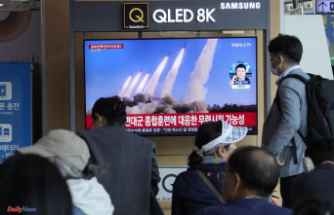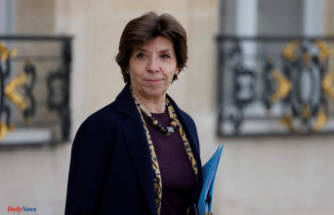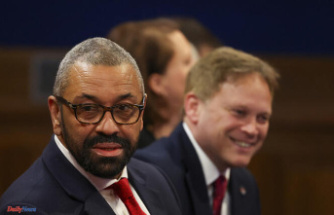This unexpected exchange occurred at a Security Council meeting that was called to discuss the expulsion of the officials amid what the U.N. considers an increasing humanitarian disaster in the Horn of Africa country. Some council members believe that the expulsion of the officials, most of whom are with the U.N. humanitarian agency, will cause additional difficulties in aid operations already complicated by the crisis.
Taye Atske Selassie, Ethiopian Ambassador, made new claims about the officials. He claimed they had inflated the needy population by 1,000,000, cheered the Tigrayan rebels, created a dozen deaths at a camp for displaced persons, and helped to channel Ethiopian migrants from Saudi Arabia into another African country "for training and preparation" in order to fight the Tigrayans.
Ambassador said that Ethiopia deeply regrets the experience and added that the government had written the U.N. regarding July staff conduct.
Surprisingly, Guterres replied that he knew nothing about these allegations and that he had twice requested Prime Minister Abiy Ahmad to send details on any concerns regarding the impartiality U.N. staffers.
Guterres , who believes that Ethiopia has no right under U.N. charter expelthe officers, made a rare move by directly responding in the council chamber. He requested the ambassador to give any documents the government might have regarding any alleged wrongdoing of any of the seven officials.
Guterres said that it was his duty to protect the United Nations' honor. He stated that if the documents were provided, the U.N. would investigate why he was not alerted.
Ethiopia declared the expulsions on Thursday and accused the U.N. officials de facto meddling in the country’s internal affairs.
Later, the country's foreign ministry added more details to its claims of "grave violations", such as violating security arrangements, transferring communications equipment for Tigray forces and spreading misinformation.
However, much of the information Wednesday's ambassador shared was not publicized before.
The U.N. became increasingly vocal about the Ethiopian government's blockade in Tigray, where it claims local forces have been fighting government troops since November.
After Prime Minister Abiy Ahmad sidelined Tigrayan's regional party, which had dominated Ethiopian government for decades, the conflict started as a political dispute. The conflict spiralled into a war that killed thousands and created a hunger crisis that continues to threaten more.
Guterres stated that up to 7 million people in Tigray, as well as in the surrounding regions, are in dire need of food and other assistance. An estimated 400,000 people live in "famine-like" conditions.
"The Ethiopian people are suffering. He stated that we have no other interest than to stop this suffering.
Martin Griffiths , U.N. humanitarian chief, told The Associated Presslast Week that only 10% of the needed humanitarian supplies had reached Tigray in recent week.
Five of the expelled officials work for the U.N. humanitarian organization, one with the U.N. rights office, and the seventh with UNICEF, U.N. children’s agency.
After Friday's emergency closed-door meeting, the council did not take any action. Divisions were discussed at Wednesday's meeting.
The U.S. and other European members expressed dismay at the expulsions, speaking before the Ethiopian ambassador.
Geraldine Byrne Nason, Irish Ambassador, stated that it cannot be ignored or excused.
U.S. Ambassador Linda Thomas Greenfield called the expulsions unjustified, reckless and an insult to the U.N. and its member countries.
Later, when she was asked about the accusations made by the Ethiopian envoy, she stated that the U.S. wanted "to see the allegations" and "where they're from", but it "raises some concern" that the allegations emerged after the officials were expelled.
Thomas-Greenfield asked the council to adopt a resolution to ensure that the U.N. can provide humanitarian aid to Ethiopia.
She stated that "if these calls for humanitarian access are not being heard, then the Security Council should act."
Representatives for China and Tunisia, the latter representing the three African members of the council plus St. Vincent & the Grenadines, called for "quiet diplomacy."
Indian Ambassador T.S. T.S. Indian Ambassador
The ambassador of Ethiopia asked the U.N. for new staffers to replace those who were forced to leave. He stated that his country was willing to cooperate with the international community.
He said, "No one should doubt Ethiopia's tradition of hospitality." "What we demand is respect, dignity, and honesty."












